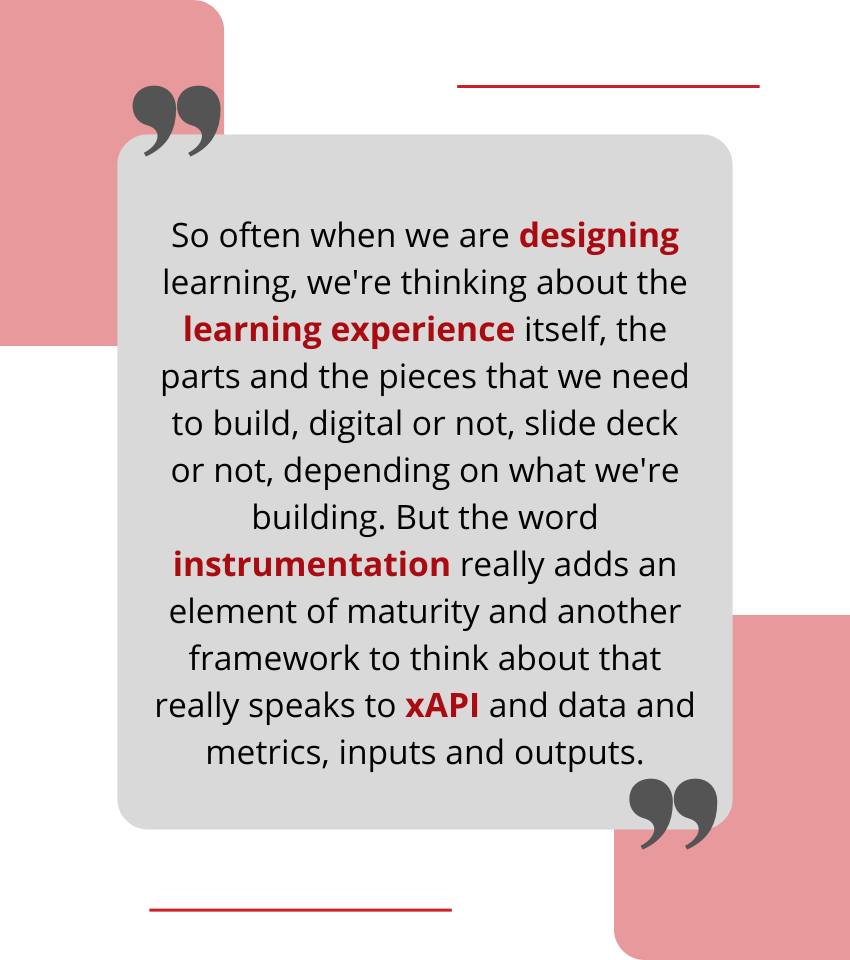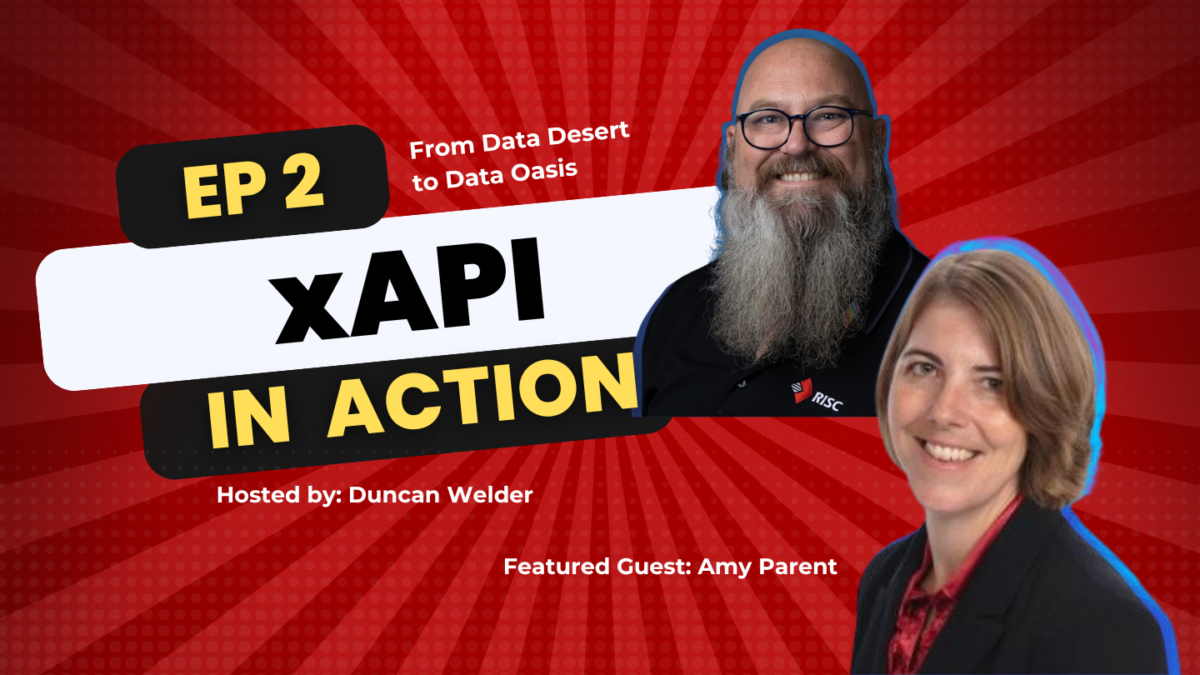No Longer a Data Desert: Using xAPI to Quantify Learning
In our second episode of ‘xAPI in Action’ we dive into the transformative power of xAPI (the Experience API) and its applications with Amy Parent. Amy is a leading voice in L&D and Director of Learning Ecosystems at Salience Learning. In this blog, I’ll explore the insights shared during our engaging conversation on how she uses xAPI to quantify learning.
The Intersection of Science and Learning
Amy Parent is known for her scientific approach to solving learning problems. She draws inspiration from luminaries like Dr. Will Telheimer and his learning transfer evaluation model (LTEM). Like many L&D colleauges, her goal is to measure the impact of Learning Experiences comprehensively. Central to Amy’s strategy is the concept of ‘instrumenting’ learning experiences with xAPI to quantify engagement, learning, and application of new skills.
Evidence and Perception in Training Progress
Amy and I discussed the interesting correlation between perception and evidence of training effectiveness. That is, what we believe works vs. what actually works. Through xAPI, vast types of data can be captured. This offers us more than a snapshot of learning but a narrative of the learner’s journey. Amy discussed how pre- and post-assessments can be tracked with xAPI to provide a rich dataset. That dataset can be used to inform how learning projects are designed, developed, and applied.
xAPI’s Role in Personalized Learning
One of the game-changing benefits of xAPI is the ability to craft adaptive learning experiences and personalized learner tracks. Amy emphasized xAPI’s facilitation of feedback loops for personalization by monitoring student behavior and performance to shape learning experiences. She also discussed how behavioral science identifies the data needed to effectively monitor learners’ intentions and progress through learning experiences.
 The Quest for Quality Data
The Quest for Quality Data
Throughout the conversation, there is an emphasis on consistently collecting quality data.This mindful collection of data provides a foundation for informed decision-making. Amy highlighted the challenge of standardizing vocabulary and profiles for xAPI, crucial for ensuring the actionable value of data. We also discussed the IEEE’s Learning Technology Standards Committee work to formalize the way xAPI data is gathered and used.
xAPI in Action: Badging and Beyond
The conversation also covered the operational side of xAPI. We are now at the point we can use xAPI data outside the learning experience. Examples included using xAPI to manage things like digital badges, access control systems and using xAPI to update enterprise systems. RISC Inc’s xACTION application does just this by analyzing xAPI statements and making outbound actions. Amy believes that understanding the core questions we ask with xAPI and how we measure success are imperative in the design process.
Learning Engineering: A Team Approach
 Lastly, Amy shared her perspective on how learning engineering’s evolution unites learning, data and science to address complex learning issues. With the next International Consortium for Innovation and Collaboration in Learning Engineering (ICICLE) Conference scheduled this summer the field of Learning Engineering will do nothing but continue to grow. Amy also recommended the Learning Guild’s xAPI Cohort and DevLearn conference for knowledge sharing and inspiration.
Lastly, Amy shared her perspective on how learning engineering’s evolution unites learning, data and science to address complex learning issues. With the next International Consortium for Innovation and Collaboration in Learning Engineering (ICICLE) Conference scheduled this summer the field of Learning Engineering will do nothing but continue to grow. Amy also recommended the Learning Guild’s xAPI Cohort and DevLearn conference for knowledge sharing and inspiration.
Tune in to the full conversation to learn more about using xAPI and results-focused design in developing structured, mindful approaches to learning.
Looking Ahead: Continuous Collaboration and Innovation
My discussion with Amy Parent uncovered several benefits of xAPI inside and outside of the learning and development landscape. The insight Amy shared reinforces the notion that intentional design, robust data analytics, and comprehensive collaboration are key to deriving maximum impact from L&D initiatives. For those eager to learn more and tap into the growing xAPI community, consider joining one of the IEEE xAPI Working groups, lurk at an xAPI Cohort, and attend industry conferences like the Learning Guild’s DevLearn or IEEE ICICLE .
Join us as we continue to feature leading experts and delve deeper into xAPI’s role in revolutionizing how we understand and facilitate learning. Stay tuned for more from RISC’s ‘xAPI in Action’ series. Don’t forget you can find the RISC team out and about this year at the ATD International Conference and the Learning Guild’s DevLearn Conference.
Did you miss the first episode of xAPI in Action? Click here to learn from Megan Torrance how their project CODE NAME EMMA is using xAPI and Generative AI to effectively training physicians treating spinal cord injuries.
Do you need help with an xAPI project and not sure where to begin? Reach out to us before you get started to design with the end in mind.


